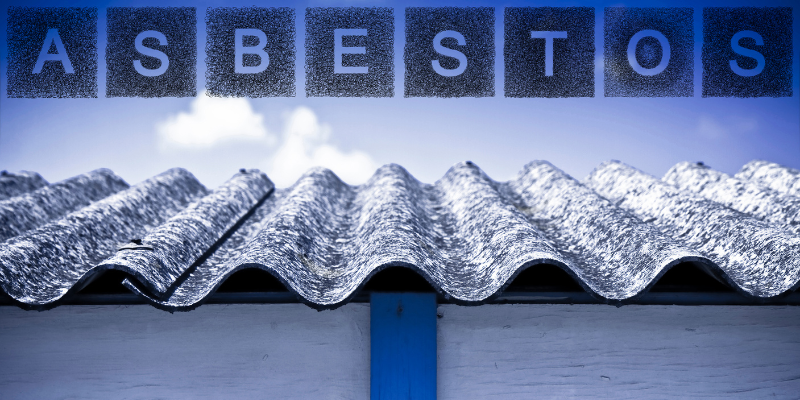
Selling a house in Oregon with asbestos requires careful navigation to comply with state laws. For ethical and legal real estate transactions, asbestos disclosures are essential. This guide advises homeowners on disclosing asbestos conditions and marketing a property with hazardous materials. The Oregon guidelines help homeowners manage risk and make the selling process transparent and easy. It’s hard to know where to start, but Northwest Real Estate Solutions can help you comply with state disclosure laws.
Brief Overview
Legal and disclosure requirements must be followed when selling an Oregon house with asbestos for transparency and ethics. Sellers must disclose asbestos use and health risks under state law. Realtors and thorough inspections can help manage disclosures and avoid legal issues. A faster sale without asbestos removal is possible by working with cash home buyers in Oregon and nearby cities. Proper planning and compliance can protect sellers legally, maintain buyer trust, and streamline transactions.
Key Highlights
- Selling homes with asbestos in Oregon requires compliance with stringent disclosure laws to ensure transparency and build buyer trust.
- Asbestos, extensively used before the 1980s, carries significant health risks, impacting home value and buyer appeal significantly.
- Oregon mandates disclosure of asbestos as a material defect to protect both sellers and buyers in real estate transactions.
- Proactive asbestos removal or clear disclosure can enhance home value and streamline the negotiating process for sellers.
- Working with real estate professionals is crucial for navigating asbestos-related sales, ensuring legal compliance, and market appeal.
Understanding Asbestos in Homes
Due to its properties, asbestos was once a popular construction material. Despite its benefits, asbestos in homes is dangerous. This section discusses asbestos use in homes and its risks. Homeowners selling in Oregon or elsewhere must understand asbestos’s role in construction and health risks. This comprehensive guide helps you understand asbestos in homes and how it affects selling.
| Asbestos Use in Homes | Key Properties | Associated Health Risks | Considerations for Homeowners |
|---|---|---|---|
| Commonly used in insulation, roofing, and floor tiles. | Durable and heat-resistant. | Linked to lung cancer, mesothelioma, and asbestosis. | Consider professional inspection and removal for older homes. |
| Popular from the 1940s to the 1970s. | Fire-resistant. | Health risks through inhalation of fibers. | Inform prospective buyers of known asbestos presence. |
| Found in both residential and commercial properties. | Soundproofing qualities. | No safe level of exposure has been established. | Be aware of regulations regarding asbestos management and removal. |
This table summarizes asbestos’s historical use, benefits, and health risks in homes, providing crucial information for real estate buyers.
What Is Asbestos, and Why Is It Used in Houses?
Thin, durable fibers of asbestos are naturally occurring silicate minerals that resist heat, fire, and chemicals. This made asbestos a popular construction material before the 1980s, when its health risks became known. In older homes, asbestos is found in roofing, insulation, floor tiles, cement, and paints.
From the 1920s to the 1980s, builders strengthened and fireproofed homes with asbestos. Its insulation kept buildings warm and met fire safety standards. Asbestos was essential to building durable and safe structures.
Once disturbed, asbestos fibers can be inhaled, causing serious health issues. This discovery turned it from a reliable building material to a major health risk. Today, homeowners and buyers must know where asbestos is and handle it safely, especially during renovations or demolitions.
The Health Risks Associated with Asbestos in a House
Inhaling asbestos fibers is dangerous. Asbestos fibers in the lungs can cause asbestosis, lung cancer, and mesothelioma, a rare cancer linked to asbestos exposure. Many people don’t realize the danger until it’s too late because symptoms take decades.
Even if asbestos-containing materials seem stable, renovations or aging increase risks. It’s crucial to assess and manage Oregon homes to protect current residents and potential buyers. Safely selling a home with asbestos requires disclosure and compliance.
Understanding and communicating health risks is crucial for trust and legal compliance. Real estate sellers who disclose asbestos issues protect future residents and maintain their property’s value.
Oregon Law and Selling a Home with Asbestos
Oregon homeowners must follow certain rules when selling an asbestos-containing home. Understanding Oregon law and disclosure obligations can simplify this complicated process. Asbestos disclosure is about transparency and ethics in real estate transactions, not compliance. This section explains Oregon seller disclosure laws and “material defect” for sellers. Recognizing these requirements can help you comply with legal requirements and inform potential buyers, making the transaction easier and ethical.
What Oregon Law Requires You to Disclose
Home sellers in Oregon must disclose all material defects, including asbestos. This increases transparency and protects buyers and sellers. A property disclosure statement must be completed when selling a home with asbestos to disclose its presence, condition, and health risks. Not disclosing such information can result in fines or canceled sales.
Working with a licensed real estate agent ensures Oregon’s strict disclosure rules are met. Experts in asbestos transactions can help sellers communicate these issues professionally. Professional asbestos inspections can also document accurate disclosures and informed removal decisions.
Integrity and transparency build trust and prevent disputes. Sellers show integrity and promote a fair real estate market by disclosing asbestos concerns and following Oregon law.
Practical Steps for Handling Asbestos Disclosures in Oregon:
- Understand State Regulations: Know Oregon’s asbestos disclosure laws, which require sellers to notify buyers of any asbestos.
- Conduct a Professional Inspection: Have a certified asbestos professional inspect and report on asbestos-containing materials.
- Gather Necessary Documentation: Collect asbestos reports, inspections, and findings on your property. Potential buyers need this information for full disclosure.
- Utilize Standard Disclosure Forms: Apply Oregon’s standard real estate disclosure forms, including asbestos-related sections and addenda.
- Communicate Transparently with Buyers: Avoid misunderstandings and disputes by clearly communicating asbestos issues to potential buyers early in the transaction.
- Consider Remediation Options: Consider how asbestos abatement or remediation in a house with mold might affect the property’s value and buyer interest before listing it.
- Consult Legal Advisors: To comply with legal requirements and handle complex asbestos disclosure issues, consult a real estate attorney.
Oregon asbestos disclosure requirements can be navigated by sellers using these steps, ensuring a smoother transaction and protecting their and potential buyers’ interests.
Determining Oregon Sellers’ “Material Defect”

The term “material defect” in Oregon refers to any condition that significantly reduces a property’s value or endangers occupants. Under state law, asbestos is a material defect because it is harmful. Selling a home requires legal disclosure and transparency. Understanding this definition helps.
Sellers must disclose visible and hidden defects that may require asbestos inspections. Recognizing and reporting these issues prevents legal issues and boosts buyer confidence. Clarity protects sellers from disputes and shows honesty.
Legal and real estate experts help sellers with disclosures. Oregon sellers enhance real estate trust, ethics, and compliance by acknowledging asbestos as a material defect and disclosing it.
Required Disclosures: Seller Responsibilities
Selling a home in Oregon, especially one with asbestos, requires knowledge of disclosures and seller responsibilities. Providing comprehensive seller disclosure in real estate transactions is ethical and legal. This section discusses real estate disclosure statements and how sellers can meet all disclosures while maintaining buyer trust. If sellers follow these guidelines, they can manage their disclosure obligations and make transactions more reliable.
The Importance of Seller Disclosure in Home Sales
Real estate transactions require seller disclosure to ensure transparency between buyers and sellers. Oregon sellers must disclose property defects, including asbestos. Honesty fosters trust, prevents misunderstandings, and streamlines sales and compliance with state laws.
Failing to disclose issues can have serious legal and financial consequences. Sellers hiding asbestos defects risk lawsuits, canceled sales, and penalties. Disclosure of asbestos’s health and regulatory risks protects buyers and sellers.
Disclosure demonstrates real estate ethics beyond legality. Transparency sets buyer expectations and builds trust. Sellers who disclose property conditions avoid disputes and maintain trust in Oregon’s housing market.
How to Complete Disclosures

Understand Oregon real estate laws to make all required disclosures when selling a home with asbestos. For compliance and to avoid disputes, sellers must disclose material defects, including asbestos. Early legal knowledge ensures a smooth, transparent sale.
To ensure compliance, work with experienced real estate agents and lawyers. These experts can help sellers with disclosure, statement drafting, and issue identification. Certified property inspections can document asbestos presence, boosting transparency and credibility.
Sellers should keep buyers informed throughout the disclosure process. Transparency reduces miscommunication and builds buyer trust. Sellers can meet Oregon real estate disclosure requirements with integrity by combining legal awareness, professional guidance, and honesty.
Tips for Successfully Selling a House with Asbestos
Selling an asbestos-containing Oregon house requires strategic planning and legal knowledge. Sellers must consider asbestos removal and property value to navigate the complex process. This section discusses whether to remove asbestos before listing your house and how it may affect its value. Understanding these factors can help sellers succeed while adhering to state laws and maintaining buyer trust. Working with cash home buyers in Portland, OR, and surrounding cities in Oregon can also simplify the process, offering a quicker sale and minimizing complications related to asbestos disclosure or remediation.
Should You Remove Asbestos Before Selling?
The cost, timing, and market conditions determine whether to remove asbestos before selling your home. Buyers may be wary of asbestos due to health risks, which may affect bidding. Though costly, removal may increase your home’s value and attract buyers. Safe and compliant removal requires certified professionals.
Sellers sometimes disclose asbestos and lower the price, allowing buyers to remove it. The sale can be simplified and accelerated, especially in high-demand markets. Undisclosed asbestos can result in lower offers, longer negotiations, or legal issues.
Decisions depend on finances and urgency to sell. The best strategy may be determined by an asbestos-experienced real estate agent. Maintaining buyer trust and considering remediation Options: Consider how asbestos abatement or remediation might affect the property’s value and buyer interest before listing it.
Will Asbestos Lower My Home’s Value?

Asbestos presence in a property potentially alters its value and impacts buyer interest. Potential buyers are generally put off by the risks to their health and the price of removing asbestos, and as a consequence, the demand and potential offers become lower. The implications depend on the condition and location of the property as well as the extent to which asbestos is present.
In fast-moving markets, and if sellers are honest and provide qualified evaluations pertaining to asbestos in their properties, such homes can still do well. Adjustments to the price or a clearly defined plan to remediate the situation will enable a property to maintain its appeal. Experienced real estate agents, with a track record of marketing properties that contain asbestos, can effectively manage their clients’ expectations regarding potential pricing and vendor expectations regarding the required disclosures.
While the presence of asbestos will lower a seller’s perceived value, carefully planned reductions in the price the seller is asking, as well as buyer proactive strategies such as asbestos removal, will still allow the seller to complete the sale.
Oregon homeowners selling asbestos-contaminated homes must consider legal and market factors. Sellers can meet state requirements by making minor repairs and providing asbestos disclosure. Sellers should hire a real estate expert to market and comply with laws. Recognizing buyer anxiety and highlighting the property’s best features can be profitable. This makes selling the house easy, safe, and legal. Contact Northwest Real Estate Solutions for safe-selling advice.
Need to sell a house with asbestos? Northwest Real Estate Solutions makes it simple with fair cash offers and a seamless process. Contact us at (541) 399-9535 now!”
FAQs
What are the legal obligations for selling a house with asbestos in Oregon?
Oregon requires sellers to disclose all material defects, including asbestos. A property disclosure statement must describe the presence and condition of asbestos. Failure to disclose such information could jeopardize the sale and subject you to legal action.
How does asbestos affect a property’s market value in Oregon?
Due to health risks and removal costs, asbestos can lower property value. Its effect depends on local market conditions and buyer perceptions. Asbestos transparency and professional assessments reduce concerns and maintain competitive pricing.
Is it advisable to remove asbestos before selling a house?
Before selling, asbestos removal may boost home value and attract more buyers. But only certified professionals should do it. Sellers can also disclose asbestos and estimate removal costs.
Why was asbestos commonly used in construction?
The strength, heat, fire, chemical resistance, and thermal insulation made asbestos popular. These qualities made it desirable for insulation, roofing, and floor tiles before its health risks were known.
What are the health risks associated with asbestos?
Asbestosis, lung cancer, and mesothelioma can result from asbestos inhalation. These diseases exhibit symptoms decades after exposure, emphasizing the need to remove asbestos immediately.
Helpful Oregon Blog Articles
- Who Is Responsible For HOA Fees At Closing In Oregon
- Guide To Oregon Inheritance Laws
- Paperwork For Selling Your Oregon Home by Owner
- Understanding Squatters’ Rights In Oregon Real Estate
- How To File A Quitclaim Deed For Real Estate In Oregon
- Homeowners Insurance When Selling a House in Oregon
- Can You Sell a House with Asbestos in Oregon
- How to Sell a House with Mold in Oregon
- Who Pays Taxes When Selling a House in Oregon?
- How to Sell a Condemned House in Oregon
- Can the Seller Back Out of a Contract in Oregon?
- How Much Equity Do I Need to Sell My House in Oregon?

